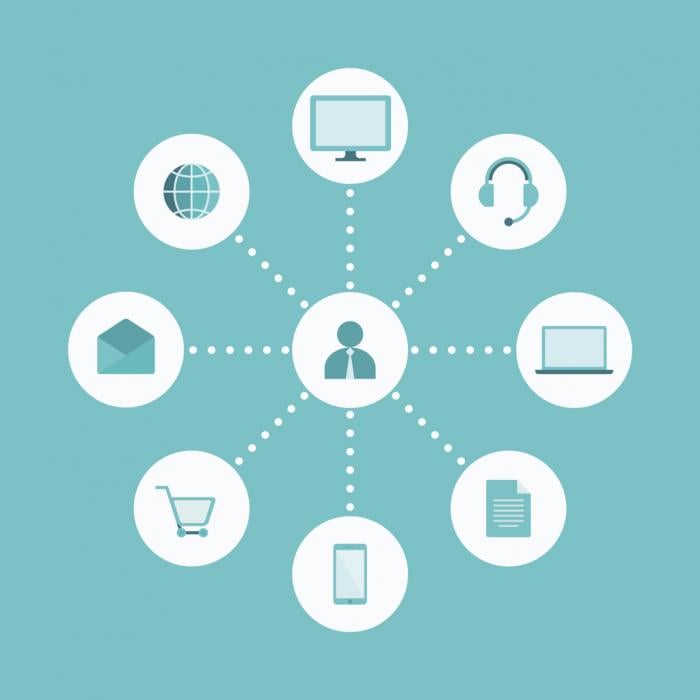Refill Reminders Automation to Improve Adherence and Outcomes
One missed dose may not look like much, but they add up to impact hundreds of thousands of patients' health and trickle downstream through the entire...

Providing an outstanding customer experience is essential, especially as businesses focus on modernizing communications to expand their existing cadre and better interact with customers. And, with the rise of remote operations, decision makers are exploring how to integrate cloud-based communications technologies that meet their employee and customers’ needs. Cloud contact centers are an essential component of making sure customer satisfaction stays top of mind when updating other systems.
For background, a contact center handles inbound and outbound calls for a business and serves customers over integrated digital service channels (e.g., text, webchat, email). These channels allow customers to engage with a business according to their preferences. These days, most companies are looking for cloud or virtual contact centers. The two are similar but not exactly the same.
Cloud contact centers use software solutions to power customer support efforts. Often browser based, this software provides a comprehensive set of communication capabilities so agents can respond to customer needs and inquiries as long as they have an internet connection.
Virtual contact centers, on the other hand, are cloud contact centers where agents work across different locations, not one office. That allows a business to run a distributed contact center, which improves customer experience by letting agents work across different regions and time zones.
Throughout this post, we’ll highlight the benefits of how cloud contact centers boost customer experiences through service reliability and scalability, reporting options, and support channels.

Cloud contact centers offer business advantages that are missing in legacy, premises-based contact centers.
Since cloud contact centers rely less on a physical location, they are a more flexible option for organizations with employees working in different locations. They also offer greater flexibility to scale their contact center presence as they grow. Moreover, cloud contact centers make it easy for businesses to deploy their communication solutions with PSTN connections. This could include a collaboration platform or telecom APIs.
Today’s customers expect variety and immediacy. Having multiple communications options available makes it easy for customers to reach a business in their preferred manner. For example, a virtual contact center that leverages cloud-based communication tools can offer customers different channels or points of access to secure support. This includes phone calls, voice bots, mobile and interactive voice response on calls, online chat, video interactions, email, and even social media platforms. The business has control over their communication deployments, and the customer also has autonomy over how they interact. This combination mitigates frustrating roadblocks caused by differing time zones, web outages, technology accessibility, hearing and speaking impairments, etc.

Cloud contact centers use skills-based routing and call monitoring, allowing customers to match with agents based on their needs and the agent’s expertise. Additionally, cloud contact center technologies, such as telecom APIs and PSTN-enabled collaboration platforms, give companies more options in staffing centers that cater to various geographies, time zones, countries, etc. This not only broadens a company’s support reach, but improves the customer experience ensuring that customers get fast, localized service whenever they need it.
Depending on your communications provider, the latest contact center technologies support high network uptime and typically have disaster recovery solutions in place to mitigate downtime. These tools are automatically updated to ensure that they are in compliance and up-to-date with the latest security patches and other software updates.
Cloud contact centers act as a universal hub that use customer data to improve problem solving and support. For example, the insights and analytics on a user’s interactions with the business can help agents better serve future needs. With cloud tools, agents can see comprehensive caller data such as call history or length of call. Armed with this information, companies can analyze call trends to see if there are certain areas or times of day with higher call volume. Decision makers can then determine if they need to adjust staffing to better handle customer communications.
Overall, cloud contact centers are a valuable component of a business’ customer experience toolbox.

Mosaicx uses conversational AI to automate customer interactions in a more engaging way. Plus, Insights360 analyzes the entire call through holds, agents, transfers, and more in a single recording.
Tools like these add big value to your contact center, helping your business create a more engaging - and less frustrating - cloud contact center experience.

One missed dose may not look like much, but they add up to impact hundreds of thousands of patients' health and trickle downstream through the entire...

Every day in a pharmacy comes down to balance. Your team juggles accuracy and efficiency, compliance and safety, paperwork and patient care, all at...
.png)
When customers call, they want to be heard now, not wait. However, if there's no visibility into what's happening across queues, agents, and...